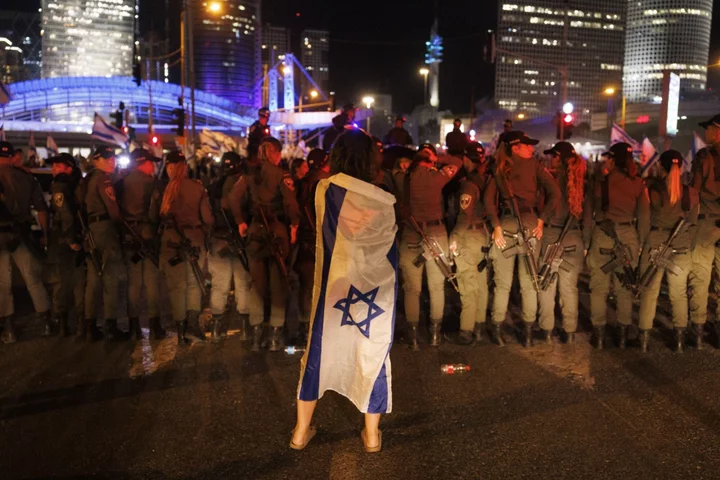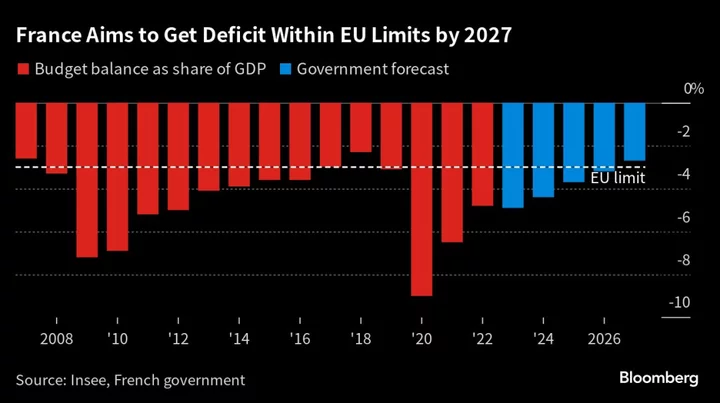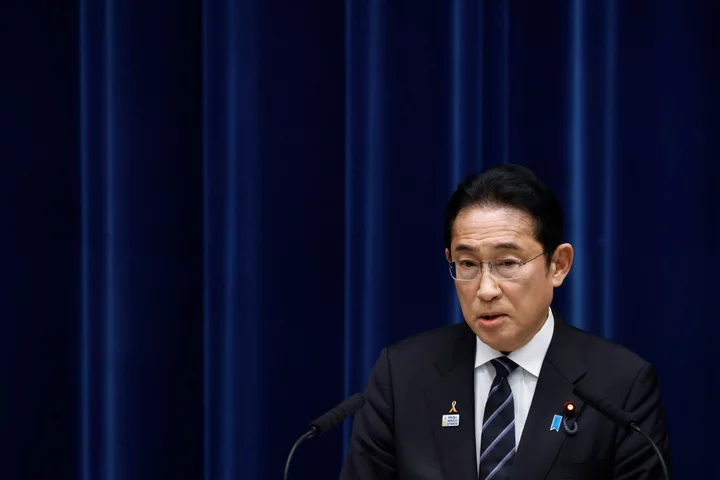Most conspicuous among the hundreds of thousands of anti-government protesters waving blue and white Israeli flags outside parliament this past weekend were women in bright red T-shirts and the red cape and white bonnets of characters in Margaret Atwood’s dystopian novel, The Handmaid’s Tale.
When the show of public strength failed to make an impression and Prime Minister Benjamin Netanyahu’s coalition passed legislation that weakens the Supreme Court and its ability to deal with gender rights and equality, women in red capes and T-shirts appeared as far as New York, where they held a red-and-white banner outside the Israeli embassy welcoming visitors to the “Gilead embassy.”
Activists fear the bill along with other coalition plans will remove checks and balances, allowing the government — which includes ultra-Orthodox and fundamentalists and is considered the most right-wing in Israel’s history — to deepen the power of religion to shape their lives. The ruling coalition says the proposals will enhance democracy by making elected lawmakers less beholden to unelected judges.
“The fight is far from over,” said Moran Zer Katzenstein, a former marketing executive and equal rights campaigner, on Monday. “As long as we have hope that a better future is possible, we will not give up.”
Michal Frenkel, a professor of sociology and anthropology at Hebrew University, said that in pushing ahead with the controversial proposals, the Israeli government is joining a broad, global revolt against liberalism which has seen countries like Hungary erode rights after introducing court reform — and that five bills making their way through the Knesset amount to a gender counter-coup. “We are going backwards fast,” she said.
Read More: Ultra-Orthodox Move From Margins to Center of Israeli Politics
Katzenstein’s grassroots Building an Alternative movement has been growing steadily since the start of the year when Netanyahu’s government took power and is part of a wider broad coalition of protest groups that includes military reservists and other women’s rights organizations.
Its members have lined streets throughout Israel with red ribbons and tied scarlet streamers around trees to raise awareness to their cause. They’ve greeted arrivals at Ben Gurion airport to Atwood’s patriarchal “Republic of Gilead” and gathered outside the US embassy in Tel Aviv, appealing to President Joe Biden to do more to persuade Netanyahu to negotiate.
The women oppose the bill passed on Monday that removes the Supreme Court’s right to overturn government actions it sees as “unreasonable,” saying women will have less recourse to petition rulings they consider unfair.
They oppose a plan by the coalition to extend the jurisdiction of rabbinical courts outside family law and another that introduces legislation to permit gender-segregated public events and university classes. Ultra-Orthodox parties say that would be respectful of their constituents’ traditions. Activists say it would open the door to discrimination across the board.
The women are also against a proposal to replace an independent organization set up by the state 25 years ago to fight gender bias, segregation and violence with a new body under Minister for the Advancement of the Status of Women May Golan, who advocates “traditional family values” and is seen by activists as anti-feminist.
Netanyahu’s office declined to comment on the concerns of women. Simcha Rothman, a lawmaker from the right-wing Religious Zionism Party and head of the Knesset law committee tweeted “there is nothing in the reform that hurts women’s rights.”
In March 2022, about 30% of lawmakers in the Knesset were women, the highest proportion ever. Israel ranked 15 out of 17 OECD countries for the number of women in government, and in the last decade the military started allowing women to serve in elite combat roles.
Activists were eyeing further gains, like reducing the gender pay gap and increasing women’s influence in the workplace. But they fear that’s no longer on the cards. “Some of the politicians are already saying publicly that women should not be serving in the army but contributing to the upbringing of children,’’ said Merav Michaeli, leader of the center-left Labor party and currently the only woman to lead a political party in the parliament.
Read More: Why Israel Is Bitterly Split Over a Plan to Overhaul the Judiciary
Some 63% of women, including both those who voted for the coalition and those who didn’t, are “concerned or very concerned” by the possibility of a negative change in the area of gender equality, according to a survey by the Israel Democracy Institute in February.
Since then, the government decided not to sign the Istanbul Convention, a European treaty aimed at protecting women from domestic abuse and gender-based violence, including stalking and forced marriage. The Hungarian government refused to ratify the document in 2020 after Viktor Orban said it promotes “destructive gender ideologies” — when he became prime minister in 2010, the country ranked 79 in the World Economic Forum’s Global Gender Gap Report; today, it ranks 99.
Israel’s civil service, meanwhile, has banned gender-inclusive spelling in official documents, meaning only masculine terms will appear. Frenkel, the professor, said that there’s a general feeling the government no longer has a will to ensure gender equity and that she is seeing women leave the civil service as a result.
The Netanyahu government “has declared war on women,” said Katzenstein.
Israeli Arabs have mostly avoided the protests because they feel excluded from Israeli society, according to Wafa Tayara, director of Maan Workers Association Women and Work Project in the Triangle, a concentration of Israeli Arab towns and villages north of Tel Aviv. But she is encouraging women from the community to march alongside her. “This is our opportunity,” she said, “otherwise we will pay the price as well, this country will not have a future.”
Their ranks growing, the women are determined not to back down. “Although at times we are dressed as handmaids, we are not handmaids,” said Katzenstein, “we are fighters for democracy.”









